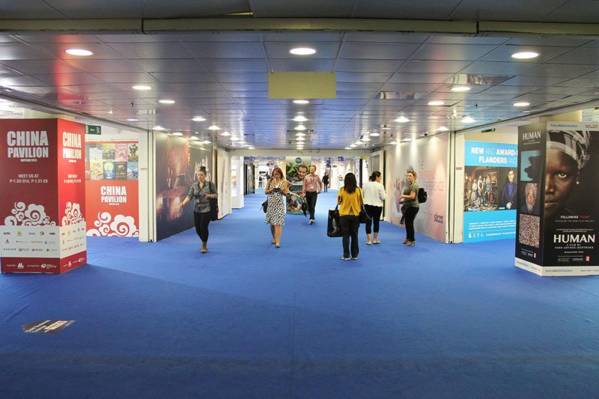An ethnography of international trade fairs for television programs, music and books

The main purpose of international trade fairs is to bring sellers and buyers from different parts of the world together. It is the place to socialize, to communicate and to contract. Simultaneously trade fairs also serve a crucial function in forming and spreading the industry’s cultural, i.e. cognitive basis: What is this business about, how can we tell good products from poor and which business practices are most appropriate?
The project aims at an ethnographic account of trading cultures in its twofold meaning: the trade in cultural goods and the cultures of trading. Picking up insights from new institutionalism and field theory we assume that selling and buying decisions by cultural intermediaries rest on shared beliefs, routines and rules. That is to say, a taken-for-granted trading culture which diffuses throughout global organizational fields.
Especially in the cultural industries where future success is hardly to predict and the costs of failure are high, people tend to imitate highly legitimate models of dealing with and in cultural goods. Trade fairs are places where we can observe this process of imitation and negotiation at work. Using ethnographic research methods such as participant observation we will thoroughly explore annual trade fairs in three different cultural industries (the TV content market MIPCOM in Cannes and the European Film Market (EFM) in Berlin; the music show midem in Cannes and the showcase festival Eurosonic Noorderslag in Groningen; Frankfurt Book Fair and the Children’s Book Fair in Bologna) in order to reveal the culture of global trade in cultural goods.
By combining applied with basic research, results of the project will also contribute to the education of media managers especially in courses on global cultural trade. In addition, industry partners can benefit from project results: Although the project does not aim at providing recipes for business strategies and success it will help managers in the cultural industries to question taken-for-granted beliefs and routines and consider new strategies.
Publications
- Dr. Sarah Baker, Senior Lecturer, School of Humanities at Griffith University
- Dr. Andrea Bogad-Radatz (Head of „Film & Series“ at the Austrian Public Broadcasting Corporation ORF)
- Prof. Paul DiMaggio (A. Barton Hepburn Professor of Sociology and Public Affairs, Princeton University)
- Prof. David Hesmondhalgh, Head of the Institute of Communications Studies; Director of the Media Industries Research Centre at University of Leeds
- Prof. Susanne Janssen, Professor of Sociology of Media and Culture and Chair of the Department of Media and Communication in the Erasmus School of History, Culture and Communication at Erasmus University Rotterdam
- Prof. Keith Negus, Professor of Musicology at Goldsmiths, University of London
- Rainer Praschak (Head of Music Business at music information center austria)
- Claudia Romeder, MA (CEO of Residenz Verlag, the largest Austrian book publishing corporation)
